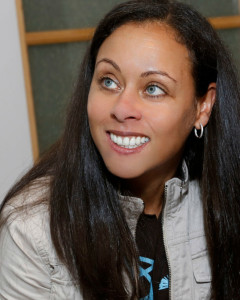Where are you from?
 I think most people probably have a ready answer for that question right?
I think most people probably have a ready answer for that question right?
I do too. But I also know depending on the day, the tenacity of my inquisitor, or depending on my own willingness to engage in the Race discussion—my simple answer may not suffice.
Where are you from? –I hear it often and sometimes the inquisitor means just that.
Hi. Nice to meet you. I’m from Texas. Where are you from?
Or howdy. Pleased you could be here. Where are you from?
Those “where are you froms” mean where do you live? How far did you travel? Did you have a nice flight? Or drive? Those “where are you froms” are meant to greet, to welcome, to measure the distance—geographically—between where we each come from.
Then there is the question: where are you from? It comes usually with some hesitation. It comes after I have perhaps established some familiarity with the inquisitor. It comes often with a sheepish smile.
“So . . .” the inquisitor says as a common preface, “Where are you from?”
“Portland,” I say.
“Portland?” the inquisitor says.
“Portland, Oregon,” I say (meaning Oregon not Maine)
“Oh.” My inquisitor will say with an up intonation indicating a question mark.
I have answered the question the inquisitor has asked but I know it is not the answer he is looking for.
Where are you from?
It’s a question that I am asked almost daily.
Where are you from?
 It is a variant on its more familiar and less politically correct question: What are you? The question asked of the ethnically ambiguous: those of us who have tan skin and light eyes. Or thick curly hair and a bright white complexion. Or those with an upslant to their eyes, thick lips and a deep chocolate brown to their skin.
It is a variant on its more familiar and less politically correct question: What are you? The question asked of the ethnically ambiguous: those of us who have tan skin and light eyes. Or thick curly hair and a bright white complexion. Or those with an upslant to their eyes, thick lips and a deep chocolate brown to their skin.
Tiger Woods famously answered the question:–What are you–by creating his own designation: Calibanasian (a mix of Caucasion, Black, Indian and Asian)– Tiger Woods wanted to give a nod to both his mother, a mixed Thai woman as well as his father, an African-American (lighter in complexion and no doubt like most African-Americans part of a family tree that includes white people who may or may not have claimed him—who may or may not have owned him).
Where are you from?
 When I heard Tiger Woods’ answer, I remember I scoffed. Where does that make him from? Calibanasia? (Even I am subject to the need to not simply label people but Place them.) How does he answer that question? How does he answer where he is from?
When I heard Tiger Woods’ answer, I remember I scoffed. Where does that make him from? Calibanasia? (Even I am subject to the need to not simply label people but Place them.) How does he answer that question? How does he answer where he is from?
Where are you from?
It’s a question people ask of me NOT to find out where I get my mail; or the name of my birthplace. Rather people ask the question to learn what is my race, my culture, my ethnicity, my nationality – one or all of the above.
The assumption behind the question is: if I can find out where you fit on the map—I will know your race. I will know something about you if I can place you geographically.
It’s not necessarily a bad assumption.
Race it seems is as much an experience of place as anything else. Zora Neale Hurston, Harlem Renaissance novelist, folklorist, and anthropologist, wrote in a wonderful essay titled How It Feels to Be Colored Me:
I remember the very day that I became colored. Up to my thirteenth year I lived in the little Negro town of Eatonville, Florida. It is exclusively a colored town. The only white people I knew passed through the town going to or coming from Orlando . . . But changes came in the family when I was thirteen, and I was sent to school in Jacksonville. I left Eatonville, the town of the oleanders, as Zora. When I disembarked from the river-boat at Jacksonville, she was no more. It seemed that I had suffered a sea change. I was not Zora of Orange County any more, I was now a little colored girl. I found it out in certain ways. In my heart as well as in the mirror, I became a fast brown—warranted not to rub nor run.
As a mixed race person with phenotypically black and white features, my identity is not just black or white – a question of being one thing at home and another out in the world. No, my identity is . . .
Read the rest of the article here.